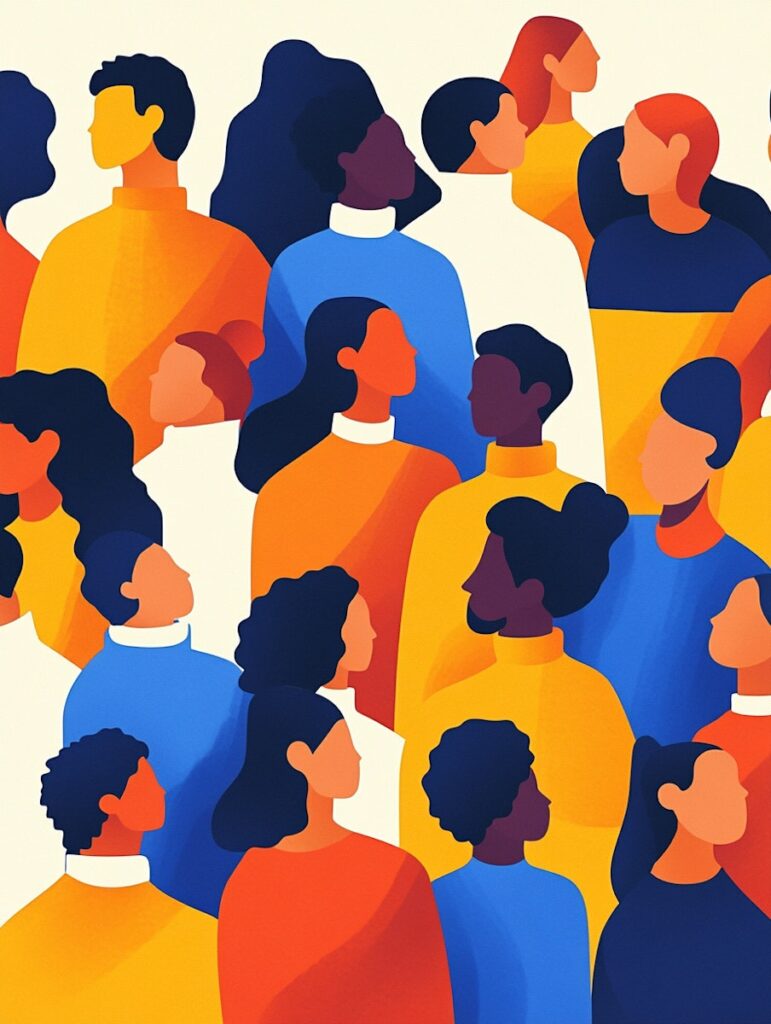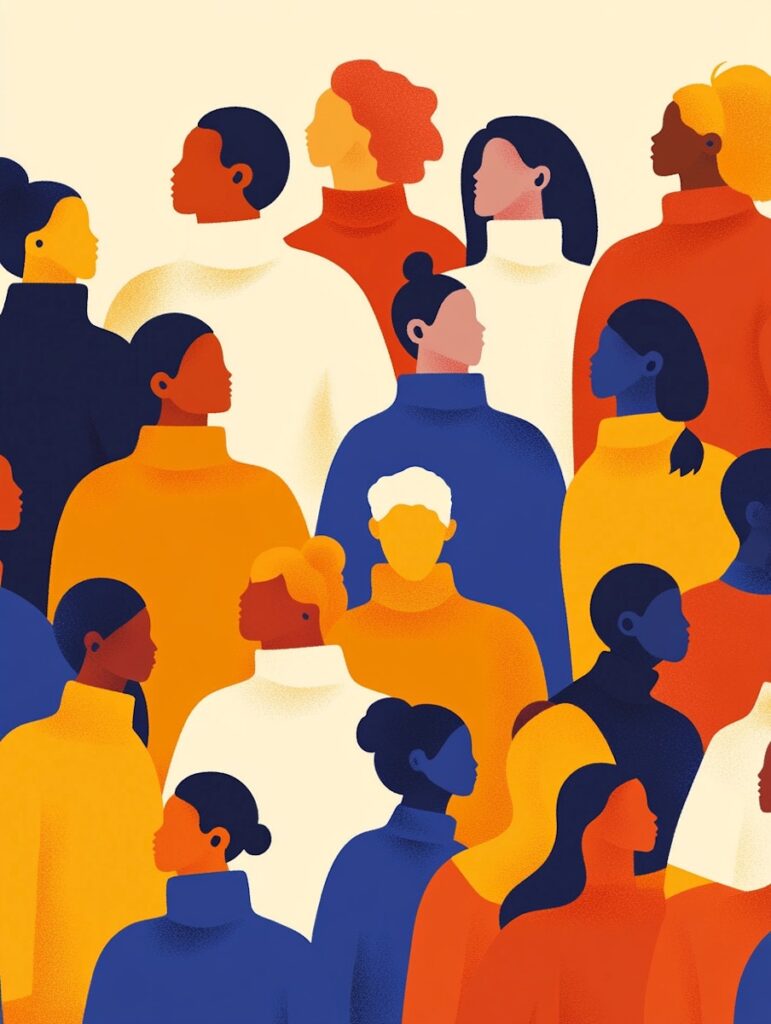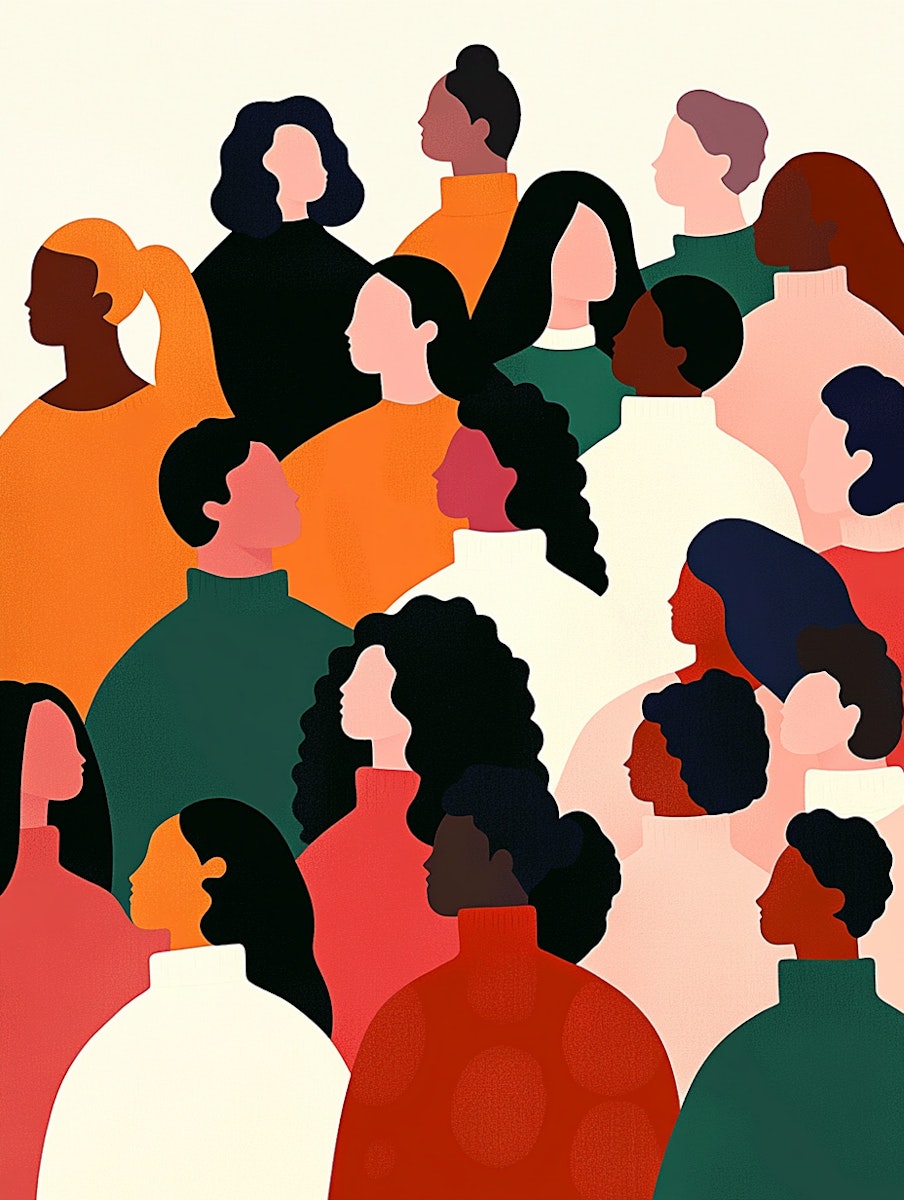Allyship isn’t a title you earn; it’s an ongoing practice. It’s about showing up—not just when it’s convenient, not just when it’s trending, but every single day in ways both big and small.
Marginalized communities—LGBTQ+ folks, immigrants, people of color, disabled individuals—are facing real, ongoing threats. And while we can’t all change the world overnight, we can make a difference in small, intentional ways that add up to something bigger.
Here’s how you can practice tangible, meaningful allyship right now—because this isn’t about grand gestures. It’s about consistent, everyday action.
1. Normalize Asking for (and Respecting) Pronouns
It takes two seconds to ask, “Hey, what pronouns do you use?” and it means the world to someone whose identity is often erased. Even better? Normalize sharing yours first—whether it’s in emails, social media bios, or introductions—so that others feel safer to do the same.
Say this: “Hey, I go by she/they. What about you?”
Not this: “You don’t look like a they/them.”
2. Speak Up, Even When It’s Uncomfortable
Silence in the face of injustice is complicity. If someone makes a racist, transphobic, or xenophobic joke, call it out. You don’t have to be aggressive, but you do have to be firm. The goal isn’t just to “win” an argument—it’s to create an environment where hate doesn’t thrive.
Say this: “Hey, that’s not cool. Let’s be better than that.”
Not this: [Nervous laughter, pretending you didn’t hear it.]

3. Support Marginalized-Owned Businesses and Creators
Money talks. If you’re buying books, art, jewelry, food—why not buy from businesses owned by LGBTQ+ folks, immigrants, or people of color? Follow and share their work. Uplift their voices. It’s an easy way to redirect resources toward communities that are often economically disadvantaged.
Do this: Buy from queer and BIPOC creators, share their work, and leave positive reviews.
Not this: “I’d love to support, but it’s just easier to order from Amazon.”
4. Check In on Your Friends (Without Making It About You)
Marginalized people carry daily battles that you might not see. A simple “Hey, I’m thinking about you” can mean the world—but remember, allyship is about them, not your own need to feel helpful. Listen more than you speak. Ask what they need. And don’t expect them to educate you for free.
Do this: “I see what’s happening and just want you to know I’m here for you. No need to respond, just sending love.”
Not this: “Omg, I feel so bad about what’s happening. Can you explain it to me?
If your only education on marginalized experiences is from social media, it’s time to dig deeper. Read books, follow activists, listen to podcasts, and challenge your own biases.
5. Be Mindful of Safety and Privacy
Not everyone is in a safe space to be out, vocal, or public about their identity. Before posting pictures at a Pride event, tagging someone in a political conversation, or assuming someone’s immigration status, check in first. Visibility is powerful, but it should always be on their terms.
Rule of thumb: If you’re unsure, ask first.
6. Stay Educated—Because Allyship Isn’t One and Done
If your only education on marginalized experiences is from social media, it’s time to dig deeper. Read books, follow activists, listen to podcasts, and challenge your own biases. Allyship isn’t about knowing everything—it’s about a willingness to learn, unlearn, and do better.
Read this: So You Want to Talk About Race by Ijeoma Oluo, The Transgender Issue by Shon Faye.
Not this: “I have a gay friend, so I totally get it.

7. Show Up for Protests and Community Events
Allyship isn’t just digital—it’s physical. If you have the ability, attend protests, community meetings, and support rallies for marginalized groups. Presence matters. Even if you’re not directly affected, standing in solidarity helps amplify voices that are often silenced.
Do this: Show up, listen, and follow the lead of those directly affected.
Not this: “I’ll just repost something online and call it a day.”
8. Donate to Mutual Aid and Bail Funds
Systemic oppression is a financial burden. If you have disposable income, consider donating to organizations that provide direct aid to marginalized communities—bail funds, trans healthcare initiatives, housing assistance for refugees. Every bit helps.
Where to donate: The Okra Project, Black Trans Advocacy Coalition, RAICES, National Bail Fund Network.
Not this: “I would donate, but I don’t know where my money goes.” (Do the research—trusted orgs are transparent.)
Allyship Is a Verb
Being an ally isn’t about looking good, earning points, or waiting until there’s a crisis to show up. It’s about making the daily choice to stand beside marginalized communities, listen to their experiences, and actively contribute to a world where everyone is safe and respected.
How will you show up today?









